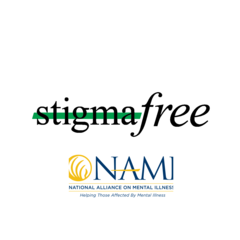Yom Kippur 2009
Joseph Stalin was born into a relatively wealthy family, in Gori, Georgia, a small town 40 miles outside of Tiblisi, Russia, December 21, 1879. Julius, my grandfather, was born in Tiblisi, Georgia ten years earlier in 1869 to a family that had a small shop where his parents sold brooms and shovels. A few years before emigrating to the United States my grandfather was drafted into the Tzar's Army sometime in his late teens. The story of his leaving Russia, according to my cousin, is that one day the Squad leader said every one could have a night off “except the Jews.” The Jews, my grandfather and one other soldier, had to stand guard. Even then, the Jews felt that this was unfair. My grandfather got into a heated discussion with the Squad Leader who refused to relent. During their discussion the squad leader was killed. My grandfather had an epiphany: it was the time to leave both the Army and Russia. Julius changed his name and somehow traveled to England. There he boarded the SteamShip Paris leaving from from Southampton August 22, 1896 for America, and arrived at Ellis Island, his New World. Since I knew the name of his steamship I was able to find his name on the ship’s manifest at Ellis Island. Julius had stated that he was a furrier and was traveling to the New World with 2 bags. On the boat he believed that to live in America and become a successful American, he needed a wife. He walked up to a pretty woman whom he had never before met. He told Celia, a teenager from Lithuania that they both would do much better in America if the were married. They were wed on board. Stalin and my grandfather seemed to have to some extent the same hot temperament.
My father, told me that he used to send letters home to the rest of the family in Russia using his correct name, Harris, and always received replies. The rest of Julius’ family survived both the death of the Squad Leader and his emigration to America. My cousin’s story is clearly open to some question.
My father, Julius’ son, always got up early in the morning, but twice a year he left the house very early to go to something called a Minyan. One day I asked where he was going so early. My mother told me that a Minyan was a memorial service at the Schul for his parents. “But why,” I asked, “did he bring a bottle of whiskey with him? And when he came home from the Service why did he have the same bottle, almost as full as when he left?” My Mother said “Ask your Father.” “For them it has to burn going down to be good.” He said “those guys don’t know good whiskey.” Minyan, it seemed to me was an early morning Jewish men’s party.
Starting at age 9, I began preparing for my Bar Mitzvah. Every day after public school and before Hebrew School I went to the YMYWHA near the Temple in Passaic, New Jersey. In 1948 the year of Independence for Israel, my Mother volunteered upstairs at the Y coordinating pledge cards for the annual drive. But downstairs, the Y had the best game room in town. That’s where I went every day and learned to play pool and ping- pong, skills I still have, although they are a bit rusty today. My Father also collected for the UJA, but the Passaic Community Jewish Council did not want to waste his skills on easy pledges. They were well aware of his Georgian roots and hot temperament. They gave him the pledge cards that were in their judgment “too small” or “very delinquent.” My father’s hardware store was on Market street where all of the Jewish merchants had started out. Perhaps to the misfortune of our family, he stayed when many others left. My grandfather Julius had built the store. In the tile at the threshold Julius had placed the date 1911, the year he founded his American business. I used to see that date every time I ran to the movie theater next door which my uncle Harris owned. When I wasn’t playing pool I was at my uncle’s movie theater. The UJA Council felt that my uncle was not doing his share contributing to the UJA in the years leading up to the founding of Israel. They of course gave his pledge card to my father to collect. A few days later, my father and uncle were talking on the sidewalk. “Hey, Harris, look up there. What is that board between our buildings?” my father asked pointing two stories up to a supporting board. “Oh, that. It is holding the wall of my theater so it doesn’t tilt any further into your store. It is protecting your business” said my uncle. “Did you ask if you could put it there?” “You didn’t!” “ What’s it going to cost you to fix it? Now, let’s look at your UJA pledge card...at this little amount. Let’s double it...for three years.” Because my father knew every Jewish merchant in town quite well, the UJA was very pleased with his work.
I received my Bar Mitzvah training at Temple Emanuel, the Conservative Synagogue in Passaic. After three and a half years, I had learned each prayer and could chant each one perfectly. I knew that during the next 6 months until my Bar Mitzvah I would have plenty of time for pool and ping pong. Then, Rabbi Rohold brought me in to his book lined cubicle and told me that I had to do more and learn more. “But, why, Rabbi?” I asked. “Because you will be Bar Mitzvahed in the Orthodox Schul where your father is a member, not here at Temple Emanuel. We need to learn just a few more chants,” he said. I did not know half of what I needed to know. For the next six months, I learned the prayers before and the prayers after the prayers that I knew. I learned the melodies that only the Cantor sang in our Synagogue. I went to every Bar Mitzvah of my classmates. They got off easy. They had the time to play pool while I studied. My day came. I stood in the middle of my Schul, an orthodox boat-shaped Schul. My mother was out of sight upstairs. My father wearing a new suit he purchased from my uncle with the clothing store on the lower end of Market Street sat with my brother next to me. Men dressed in old dark ill fitting suits wound in phylacteries and smelling of whisky that burns going down sat all around me. I saw my Rabbi quietly come in, smile at me, then sit down below me. With my hands on the Bima I started to chant with confidence knowing that I knew every prayer and melody and could easily lead both a Conservative and an Orthodox service. An old man suddenly stood and starting to chant a different melody. A melody that I did not know. I was totally lost. My father stood, enraged and told the Rabbi to “have that man stop Schnordling or I will take ‘the kid’ out of here now.” The Rabbi and I both understood that message. The Rabbi chanted louder than the Schnurdler who cowered and sat down. I started again. I chanted the entire service through to the “Dear Rabbi, honored guests, and worthy congregation...” I smiled at my Rabbi.
I was ecumenical in my dating habits. College was the time that Jewishness in any form did not exist for me. I believed in science, and poetry, and philosophy. What else did I need? I met Ronne. She convinced me that I needed a Jewish wife.
On a Temple Isaiah trip we traveled both to Turkey and to Israel with Carey and Bonnie Yales. We were with people who have become some of our closest friends in our Temple family. In Istanbul, Turkey we visited an active orthodox Temple for Saturday morning services which had also recently been attacked and fire bombed. The guards at the Temple, however, were not the Turkish police. They were the congregants themselves. There were a series of locks we had to pass through to rise into the Temple like boats in a canal. The coziness of the Temple was welcome after the entrance maze. We seated ourselves, the men towards the front, the women in the back. The Rabbi came in. He looked around the Temple from the Bima, nodded to his congregation, squinted toward the new comers, then began to dovin. We were all immediately lost. Neither my Orthodox nor my Conservative training helped at all. The one prayer that I knew I would recognize and sing was the Shma. I felt I would probably also chant the mousaf service and adon olam. Nothing! Everything was Greek to me, may the Turks forgive me. Rabbi Yales later said that he did not recognize a single prayer either. I felt that I was in good company. Back in Lexington, Rabbi Yales invited some of us to prepare a brief talk entitled “The Eleventh Commandment.” He wanted us to present on Sabbat from the Bima. The Eleventh Commandment! I agonized over what a truly Jewish Eleventh Commandment should be. The first ten covered about everything except one Jewish trait. The next Shabbat I spoke from this Bima and presented my eleventh commandment “Thou shalt have a little Guilt.” What is more important to the creation of the Jewish psyche than a little guilt?
Rabbi Yales also talked about the Russian refuznicks who needed support in trying to leave their homeland and emigrate to America. I knew what that was all about from my grandfather Julius. Our Havarah accepted the challenge and reinvented itself as the “Outreach Havarah.” We printed stationery with our new name for the letters which each of us wrote to Kruschev. Guess what! Two months after our letters were sent, the Latinsky family was told it had to leave Russia. Our words were so powerful they softened the heart of Russia! Olga, and Joseph, and their daughter Anna arrived on our doorstep. As one large family our Havarah welcomed them into our community, helped Joseph and Olga to learn English and eventually get jobs, the first step in becoming American. Olga standing in her first apartment in Lynn, shortly after arriving in her new homeland, confessed proudly to me that she had never before in her life had a bedroom of her own to sleep in. Olga and Joseph became fluent in English, found jobs, raised their daughter as an American. Like the doves on Noah’s Arc, they found nourishment in the New World and spread their wings.
My first real Medical office was on Massachusetts Avenue in Arlington. The office was Y shaped with three physician offices on each arm of the Y. Dr. Wise and Dr. Permutter were by chance on my side of the Y, while Dr. Carey, Dr. Charette, and Dr. Hewitt were on the other arm. The Jewish Docs were the left arm and the Catholic Docs, the right. We always closed our arm of the Y for the Jewish Holidays and kept open for Christmas and Easter. Occasionally a patient would tell me how he had been “Jewed out of some money.’” I let it pass. One day, a patient who I had been seeing monthly for a chronic illness talked about her old Kike of a Doctor. At the end of our visit, I told her that our next visit would be in 5 weeks instead of 4 since I would be out for the Jewish Holidays. No. I did not say that to her, although I truly wanted to. She complained about Jewish Doctors until some one told her that I was Jewish. She was meek for months thereafter.
Ronne’s Family had been members of a little Conservative Temple in Clifton, New Jersey. When Lake, Ronne's Mother died, we went to a memorial service at a second floor chapel over the old delicatessen near the highway. We knew no one there except the Rabbi. The congregation was in transition because most younger families had moved to suburban synagogues away from the highway. The congregation was very elderly. Although we were in her Mother’s congregation with the Rabbi who married us, we felt awkward. We sat in the back and chanted trying to meld into the small congregation. At the end of the Services, as the congregation members took off their tefillin I saw faded yet indelible numbers tattooed on every arm. Each congregant had survived the camp and had somehow made his own voyage to America now to pray for my Mother in Law. Harris. My name is hardly Jewish. Harris. I lost no family member that I know of in the Holocaust. I read the tearful book that members of this congregation wrote sharing histories of their family members struggling to survive in Germany during and after the Holocaust. I felt each struggle to survive as if it were in my family. Each member of the Clifton congregation came to us to express his condolences. Each shook our hand with his outstretched numbered arm.
I have listened to Jewish music all of my life. At home growing up in New Jersey, my family never went to the Temple except for Bah Mitzvahs and those morning Minyan parties. The music I eagerly listened to was on the Radio. Every Sunday morning we used to hear the Jewish Cavalcade of Stars. The Andrew Sisters were my favorite. Their tight harmonies sounded the essence of Jewish to me. My father and “the boys” used to go to New York to Vaudeville, Jewish live performance. He came back telling us how good Al Jolson was when he sang about his Mother. In College I sang with the Glee Club and Choir. I sang every Hallelujah and Amen that Bach ever wrote. So, it was easy for me to join the Temple Isaiah Choir when we joined this Temple. I have now sung here with Herman who was one of the Composers in Red Sneakers, a group of Jewish avant guard composers. He lead the Choir by saying, “OK, let’s sing” to his choir, many of whom had never sung except in the shower before. His tenure was followed by Sandy Bornstein who is professional and let each of us understand the high expectations she held for us. She rehearsed us with modulating scales and molded us into a choir able to perform at a level far beyond any that which we believed we could. We learned the nuances in our music, looked at her eyes, and sang to her and with her. The High Holiday services always had musical surprises and treats. Sandy’s soprano voice rising out of the chorus was always a highlight for me. Ravels Kaddish sung operatically gave me chills. Now we have Cantor Doob. Her voice instills in me an awe as she sings subtle Sephardic rhythms with a smile. With each new Choir director we have learned new melodies for our old prayers.
But I am no longer a Choir member. When our children left Lexington for College, Ronne was without close family sitting alone in a Congregation of families together and touching for the High Holidays. I felt out of harmony on the Bima. Now I am together with Ronne while touching and harmonizing as part of the congregation. I still sing my second base part, at times to the consternation of the monotones who surround me.
What have I learned in my Jewish Journey?
That you can never believe the gospel history of your ancestors told to you by your cousin;
That old Jewish men don’t all know good whiskey when they taste it;
That even though “today, I am a man,” I’m still “the Kid;”
That adolescent pool lessons at the Y will stand you in good stead later;
That Orthodox prayer and melody is universal, except in Turkey;
That my name does not have to sound Jewish for me to feel our broader Jewish life experience;
That it is more difficult being in a Reform Choir that in an Orthodox or Conservative Choir because although the words are immutable, the melodies change almost yearly.
Rabbi Brown here on Rosh Hashanah said “We each have a role in the transmission of the stories in our lives.” For the past few High Holiday services, I have listened to many of you tell the stories of your Jewish journey. You have told me your innermost thoughts, fears, and deepest beliefs . I felt the desire to share my travel as well as the need to understand it more deeply. I have told stories from my Conservative, Orthodox, and Reform background. All three are forever intertwined deeply in me and give expression in who I am today. I am a tree with Georgian Orthodox roots and temperament, New Jersey Conservative ethics, and an Isaiah idealism. I have found my Reform New World here.
Shana Tova





